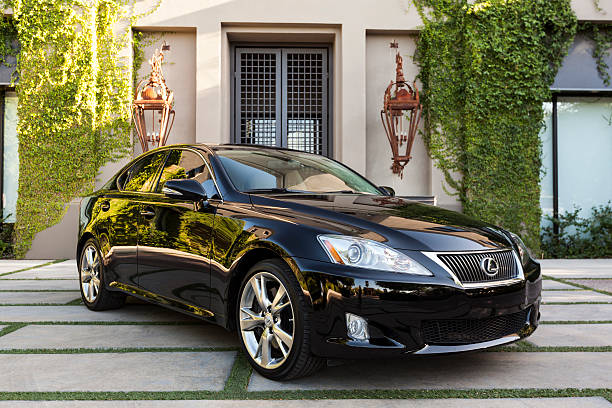The automotive industry has long been riddled with stereotypes, from associating certain car brands with masculinity to labeling others as feminine. One such perception involves Lexus, a luxury car brand, which some categorize as a “female car.” But is there any truth to this claim? Or is it merely another outdated car stereotype? In this comprehensive post, we’ll delve into the origins of this notion, explore Lexus’ demographics and marketing strategies, and analyze the real appeal of this gender-neutral car brand.
The Origin of the Stereotype
Historical Marketing Analysis
Lexus debuted in 1989 with a clear focus on luxury, reliability, and comfort. Early Lexus advertising campaigns emphasized elegance and sophistication, often spotlighting smooth rides, quiet interiors, and high-quality craftsmanship. While these attributes appealed to both genders, they were often marketed with imagery that resonated more with luxury-seeking female car buyers.
For instance, early campaigns for the Lexus RX—one of the most popular luxury SUVs—emphasized “comfort and elegance in vehicles,” portraying it as a family-friendly car, which could explain its association with femininity.
Cultural Perception of Luxury Brands
Luxury brands often face gendered assumptions. Softer aesthetics, such as curvy designs or plush interiors, are sometimes labeled as “feminine car traits,” while angular designs and roaring engines are deemed “masculine car traits.” Lexus’ focus on refinement and comfort, compared to the raw performance often highlighted by brands like BMW and Audi, inadvertently reinforced the perception.
Vehicle Design Features and Assumptions
Some Lexus models, like the RX and ES, feature smooth edges, compact builds, and user-friendly interiors, qualities that some categorize as “feminine.” However, this overlooks the rugged SUVs, sporty sedans, and adrenaline-pumping cars Lexus also produces, such as:
- Lexus GX Off-Road: A true powerhouse with incredible off-road capabilities.
- Lexus LX Adventures: Built for adventurers seeking luxury and durability in extreme terrains.
- Lexus IS F Performance and Lexus RC F Sporty Design: Cars designed to deliver thrilling driving experiences.
Lexus Ownership Demographics

Statistical Insights
According to market data, Lexus customer demographics are diverse. Lexus appeals to both men and women, with ownership divided almost equally across genders. Models like the Lexus RX and NX are popular among female car buyers, while vehicles like the Lexus GX and LC 500 are frequently chosen by male drivers for their rugged SUVs and sporty performance.
A study by IHS Markit revealed that Lexus consistently ranks among the top gender-neutral cars, with balanced appeal driven by its blend of elegance and luxury, safety features, and innovation.
Why Lexus is Gender-Neutral
- Wide Model Range: Lexus offers something for everyone, from luxury sedans to hybrid Lexus models and high-performance SUVs.
- Advanced Driver-Assist Technology: Features like lane-keeping assist, adaptive cruise control, and collision mitigation enhance safety for all drivers.
- Reliability and Resale Value: Gender-neutral traits like dependability and affordability make Lexus a top choice.
- Personal Taste in Cars: Ultimately, a personal car choice depends on preferences, not societal labels.
| Lexus Model | Primary Appeal | Popular Among |
| Lexus RX | Comfort and elegance | Women and families |
| Lexus GX | Rugged off-road capability | Adventurers, men |
| Lexus LC 500 | Sporty luxury and high performance | Both genders |
| Lexus Hybrid Models | Eco-friendly, innovative powertrains | Environmentally conscious buyers |
Beyond the Stereotype: Lexus as a Status Symbol

Unisex Attributes of Luxury Cars
Lexus focuses on delivering a sophistication in cars that appeals to a broad audience. Attributes like advanced technology, smooth handling, and quiet interiors are not gender-specific but rather universal luxuries.
Performance vs. Aesthetics
While Lexus is known for its elegance and luxury, models like the Lexus IS F Performance and Lexus RC F Sporty Design prove that the brand values power and speed just as much as comfort. These cars rival competitors like BMW’s M Series and Audi’s RS lineup, showcasing the adrenaline-pumping cars Lexus can produce.
Celebrity and Pop Culture Influence
Celebrities from all walks of life have embraced Lexus. From athletes to actors, Lexus’ association with luxury and innovation in cars reinforces its position as a versatile, unisex brand.
Breaking the Stereotype: Why Lexus is for Everyone

Practical Benefits for All Genders
- Lexus Safety Technology: Features like pedestrian detection, blind-spot monitoring, and driver-assist systems make Lexus a top choice for safety-conscious buyers.
- Budget-Friendly Luxury Cars: Compared to competitors, Lexus offers competitive pricing, making it a value-driven luxury option.
- Hybrid Lexus Models and Electric Lexus Vehicles: The brand’s commitment to sustainability appeals to environmentally aware consumers, regardless of gender.
Consumer Testimonials
“I’ve driven the Lexus GX for years. Its rugged performance combined with luxury makes it my go-to SUV for off-road trips.” – Mark S., Adventure Enthusiast.
“As a mom, the Lexus RX offers me comfort, safety, and space for my kids. It’s everything I need in a car.” – Jessica L., Family Driver.
The Gender-Neutral Future of Car Branding

Lexus is paving the way for gender-neutral car marketing, focusing on attributes that matter—performance, safety, and innovation—while leaving outdated stereotypes behind.
Conclusion
The notion of Lexus being a “female car” is a relic of outdated car stereotypes. Lexus is far more than that; it’s a luxury car brand celebrated for its elegance and luxury, powerful performance, and innovative technology. From the Lexus RX to the Lexus GX Off-Road, the brand offers something for everyone, proving that personal taste in cars transcends gender.
So, the next time someone asks, “Is Lexus a female car?” the answer is simple: Lexus is for anyone who values quality, sophistication, and innovation. Let your car lifestyle choices reflect your needs and preferences, not societal labels.
Also Read More Article : How to Insure a Car for Your Elderly Parent
